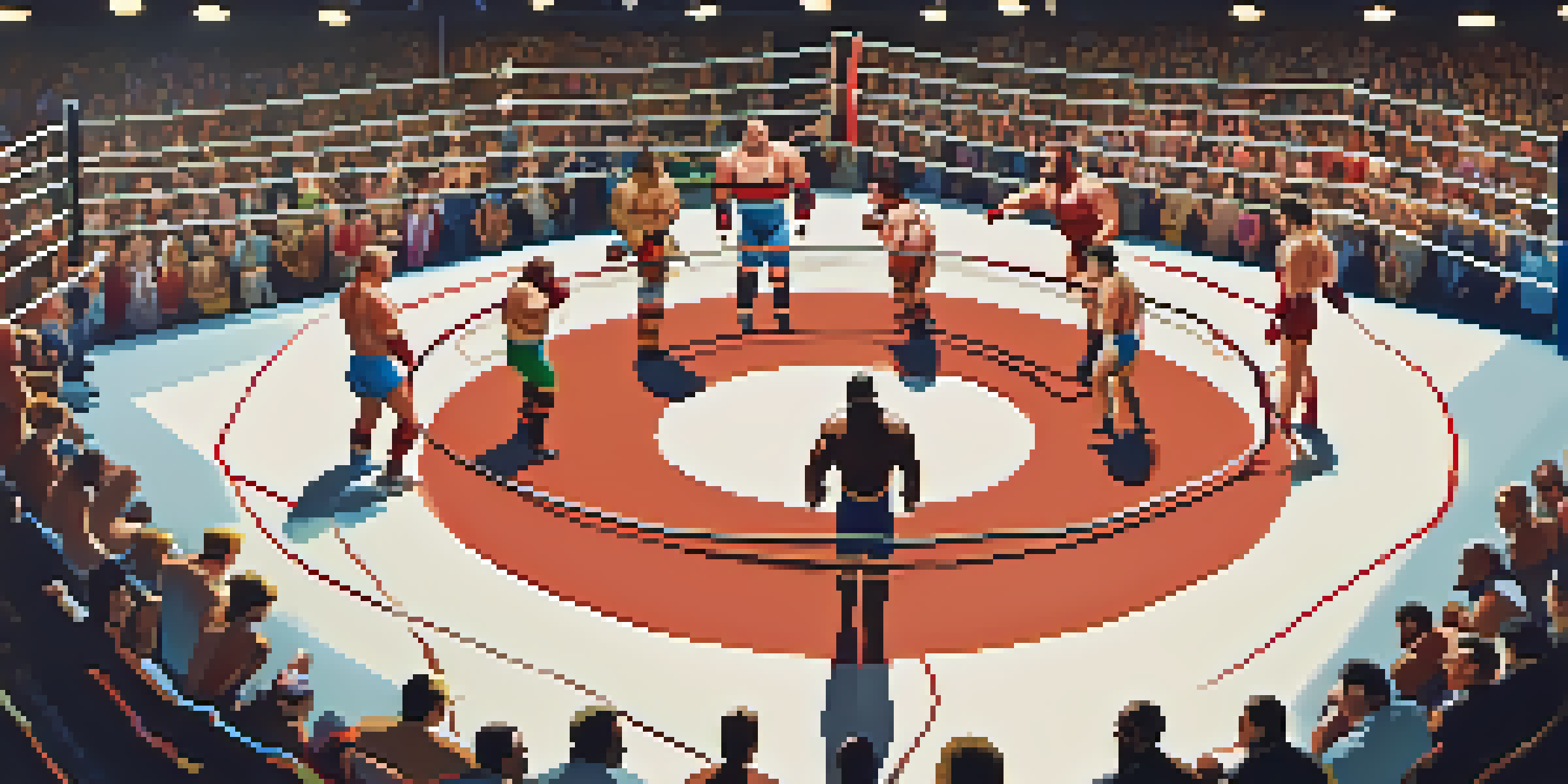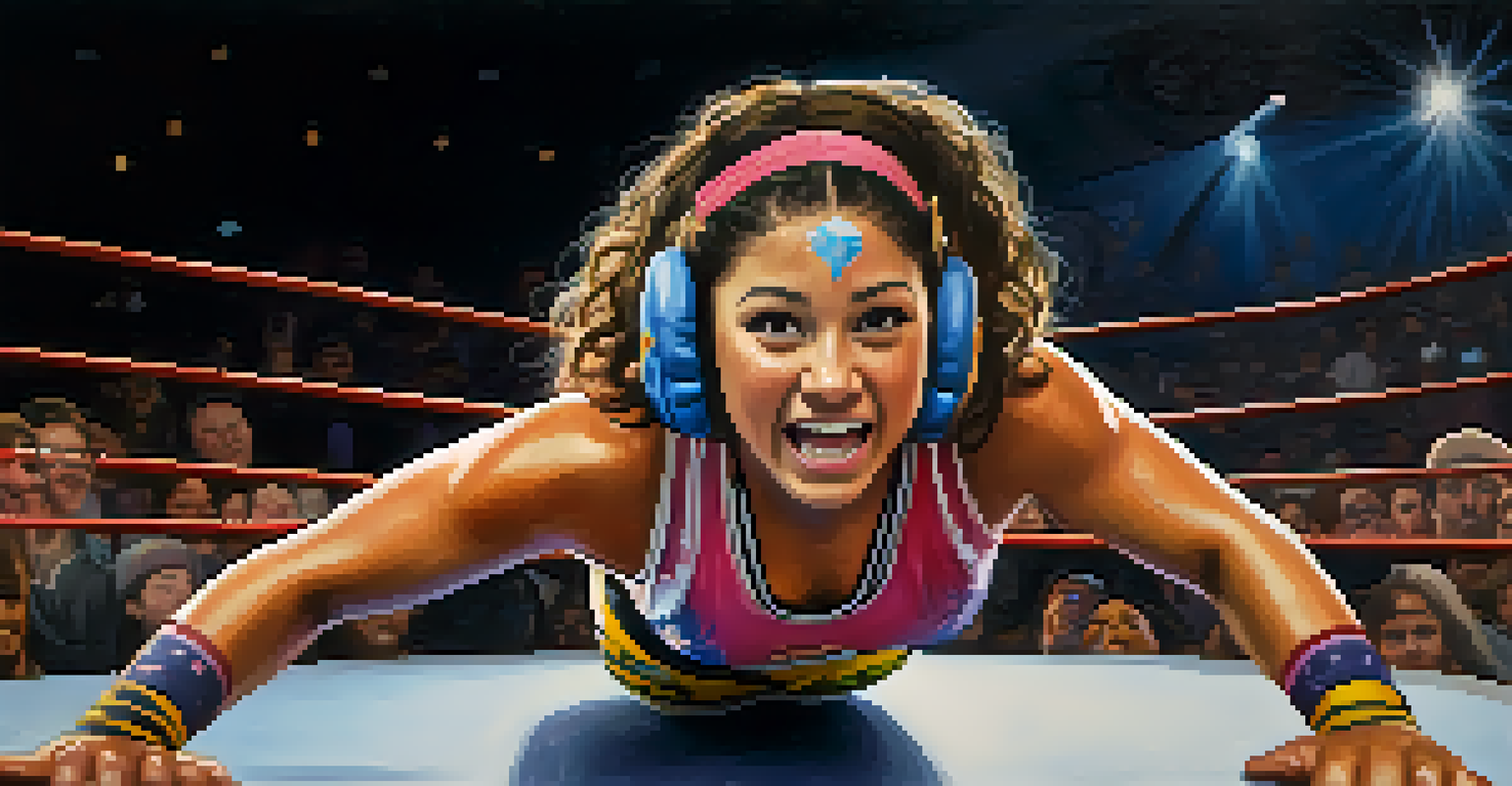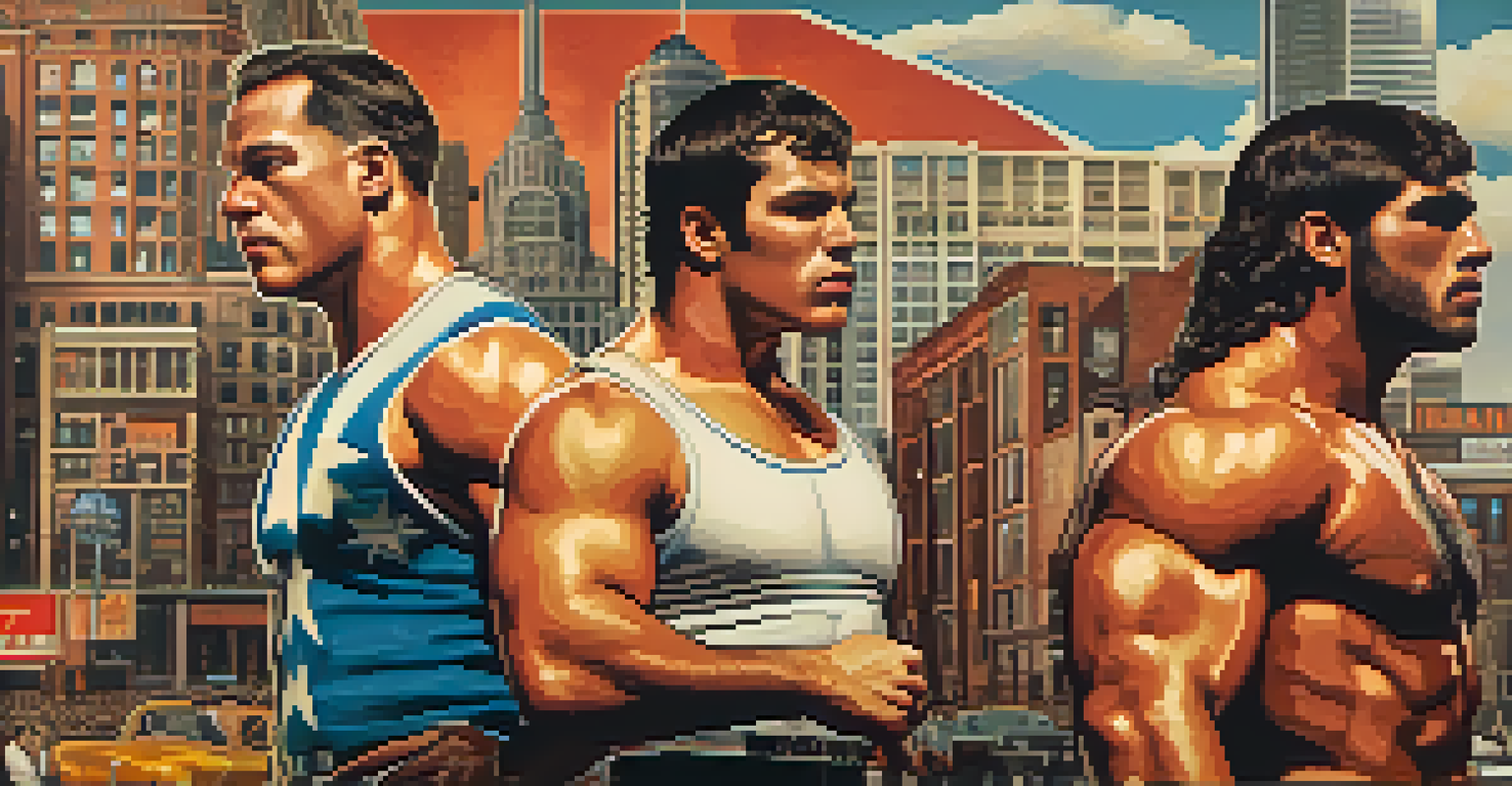The Birth of Wrestling in Detroit: A Historical Perspective

Early Roots: Wrestling's Arrival in Detroit
Wrestling has deep roots in Detroit, tracing back to the city's early days. Immigrants brought various forms of wrestling from their homelands, contributing to a melting pot of styles. This diverse background laid the groundwork for the unique wrestling culture that would emerge in the area.
Wrestling is ballet with violence.
As the city grew, so did the popularity of wrestling, particularly in local community events. These gatherings not only showcased athletic prowess but also served as a form of entertainment for families. The spirited atmosphere at these events drew in crowds, fostering a sense of community around the sport.
By the late 19th century, wrestling began to gain more formal recognition in Detroit, with local clubs organizing competitions. These events attracted not only local talent but also wrestlers from surrounding regions. This burgeoning interest set the stage for wrestling to become a staple in Detroit’s cultural landscape.
The Golden Age: Wrestling Takes Center Stage
The 1940s and 1950s marked a golden age for wrestling in Detroit, with the sport reaching new heights of popularity. Local promoters recognized the potential for larger audiences and began to hold events in bigger venues. This shift not only elevated the profile of wrestling but also attracted national attention.

Stars like The Sheik, a legendary figure in the wrestling world, became household names during this era. His flamboyant style and larger-than-life persona captivated audiences, making Detroit a key player in the wrestling scene. The excitement surrounding these matches created a fervent fan base eager for more.
Wrestling's Rich History in Detroit
Wrestling's journey in Detroit began with diverse immigrant influences, evolving into a vibrant community staple that shaped the city's cultural identity.
Television played a significant role in this golden age, allowing fans to experience the thrill of wrestling from their homes. With weekly broadcasts, the sport became a staple of American entertainment. Detroit was not just a participant in this phenomenon; it was a driving force behind the national wrestling narrative.
The Evolution: From Territory to Global Phenomenon
As the wrestling landscape evolved, Detroit transitioned from a local territory to a key player on the global stage. The rise of major promotions in the 1980s and 1990s brought a new level of professionalism and production value. This shift changed the way wrestling was perceived and consumed by audiences.
The only thing better than a wrestling match is a wrestling match with a great story behind it.
With stars like Hulk Hogan and Ric Flair making an impact, Detroit became a pivotal location for major wrestling events. The city's venues hosted iconic matches that solidified its reputation as a wrestling hub. This evolution was marked not just by the athletes but also by the passionate fans who filled the arenas.
The globalization of wrestling also meant that Detroit had to adapt to changing trends. As international styles and talents emerged, local promotions began to incorporate diverse influences. This blending of styles enriched Detroit's wrestling scene, making it more dynamic and appealing to a broader audience.
Cultural Impact: Wrestling as a Community Staple
Wrestling in Detroit is more than just a sport; it has become an integral part of the city's cultural fabric. Local promotions often engage with the community, hosting events that bring families together. This connection fosters a sense of belonging among fans, creating lasting memories for generations.
Moreover, wrestling events serve as a platform for local talent to shine. Many wrestlers from Detroit have gone on to achieve national and international fame, inspiring aspiring athletes. This cycle of mentorship and opportunity reinforces the city's reputation as a breeding ground for wrestling talent.
Resurgence of Local Wrestling Scene
Recent years have seen a revival of wrestling in Detroit, driven by independent promotions and a renewed connection with fans through technology.
The cultural impact of wrestling in Detroit extends beyond the ring. It inspires local art, music, and even fashion, with many drawing influence from the sport's vibrant history. This cross-pollination of ideas highlights how wrestling has shaped the identity of Detroit, making it a unique cultural landmark.
Challenges and Resilience: Wrestling's Ups and Downs
Like any sport, wrestling in Detroit has faced its share of challenges over the years. Economic downturns and shifting entertainment preferences have put pressure on local promotions. However, the resilience of the wrestling community has allowed it to weather these storms and adapt to changing circumstances.
Promoters and wrestlers alike have demonstrated creativity and innovation in overcoming obstacles. By embracing new technologies and engaging with fans through social media, they have revitalized interest in the sport. This adaptability has become a hallmark of Detroit's wrestling scene.
Additionally, the community's dedication to wrestling has kept the spirit alive. Local fans continue to support events, and grassroots efforts to promote wrestling ensure its legacy remains intact. This unwavering passion showcases the deep-rooted love for the sport and its importance in Detroit's identity.
The Modern Era: Wrestling's Resurgence in Detroit
In recent years, wrestling in Detroit has experienced a resurgence, with new promotions and events revitalizing the scene. The rise of independent wrestling has allowed local talents to showcase their skills and connect with audiences. This grassroots movement has breathed new life into the sport, attracting both longtime fans and newcomers.
Venues that once hosted legendary matches are now embracing modern wrestling, hosting events that blend nostalgia with innovation. These promotions often feature a diverse range of wrestlers, appealing to various demographics. This inclusivity is crucial in keeping the wrestling community vibrant and engaged.
Future Trends in Wrestling Culture
The future of wrestling in Detroit looks promising, with emerging trends like women's wrestling emphasizing diversity and attracting new audiences.
Furthermore, the integration of technology and social media has transformed how wrestling is consumed. Fans can now access content online, making it easier to stay connected to the wrestling world. This digital shift has not only expanded the audience but also created new opportunities for wrestlers to showcase their talents.
Looking Ahead: The Future of Wrestling in Detroit
As we look to the future, the potential for wrestling in Detroit remains bright. With a strong foundation built on history and community, the sport is poised to continue evolving. The passion of fans and wrestlers alike will drive this evolution, ensuring that Detroit remains a key player in the wrestling world.
Emerging trends, such as women's wrestling and inclusive events, are already shaping the future landscape. These developments reflect a broader cultural shift, emphasizing diversity and representation. As wrestling embraces these changes, it will attract a new generation of fans and participants.

Ultimately, the future of wrestling in Detroit hinges on its ability to adapt while honoring its rich history. By balancing tradition with innovation, Detroit can continue to be a vibrant hub for wrestling, celebrating both its past and its promising future.